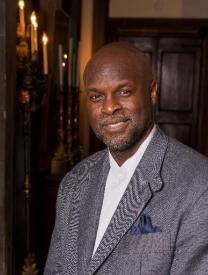Dr. Tukufu Zuberi is the Lasry Family Professor of Race Relations, and Professor of Sociology and Africana Studies at the University of Pennsylvania. He is dedicated to bringing a fresh view of culture and society to the public through various platforms such as guest lecturing at universities, television programs, and interactive social media. Currently, he works on human rights initiatives by participating in public speaking engagements, international collaborations with transnational organizations, and individuals dedicated to human equality.
Dr. Zuberi’s research focuses on Race, African and African Diaspora populations. He has been a visiting professor at Makerere University in Kampala, Uganda and the University of Dar es Salaam in Tanzania. He currently serves as the Chair of the Department of Sociology at the University of Pennsylvania. He has also served as the Chair of the Graduate Group in Demography, the Director of the African Studies Program, and the Director of the Afro-American Studies Program. In 2002, he became the founding Director of the Center for Africana Studies, and he has also served as the Faculty Associate Director of the Center for Africana Studies.
Dr. Zuberi is the writer and producer for African Independence, an award-winning feature-length documentary film that highlights the birth, realization, and problems confronted by the movement to win independence in Africa. The story is told by channeling the voices of freedom fighters and leaders who achieved independence, liberty and justice for African people. With this and other documentary film projects, Dr. Zuberi is dedicated to bringing a critical, creative vision not typically seen or heard on the big and small screen.
Born Antonio McDaniel to Willie and Annie McDaniel, and raised in the housing projects of Oakland, California in the 1970s, he embraced the name Tukufu Zuberi - Swahili for "beyond praise" and "strength." He “took the name because of a desire to make and have a connection with an important period where people were challenging what it means to be a human being."

